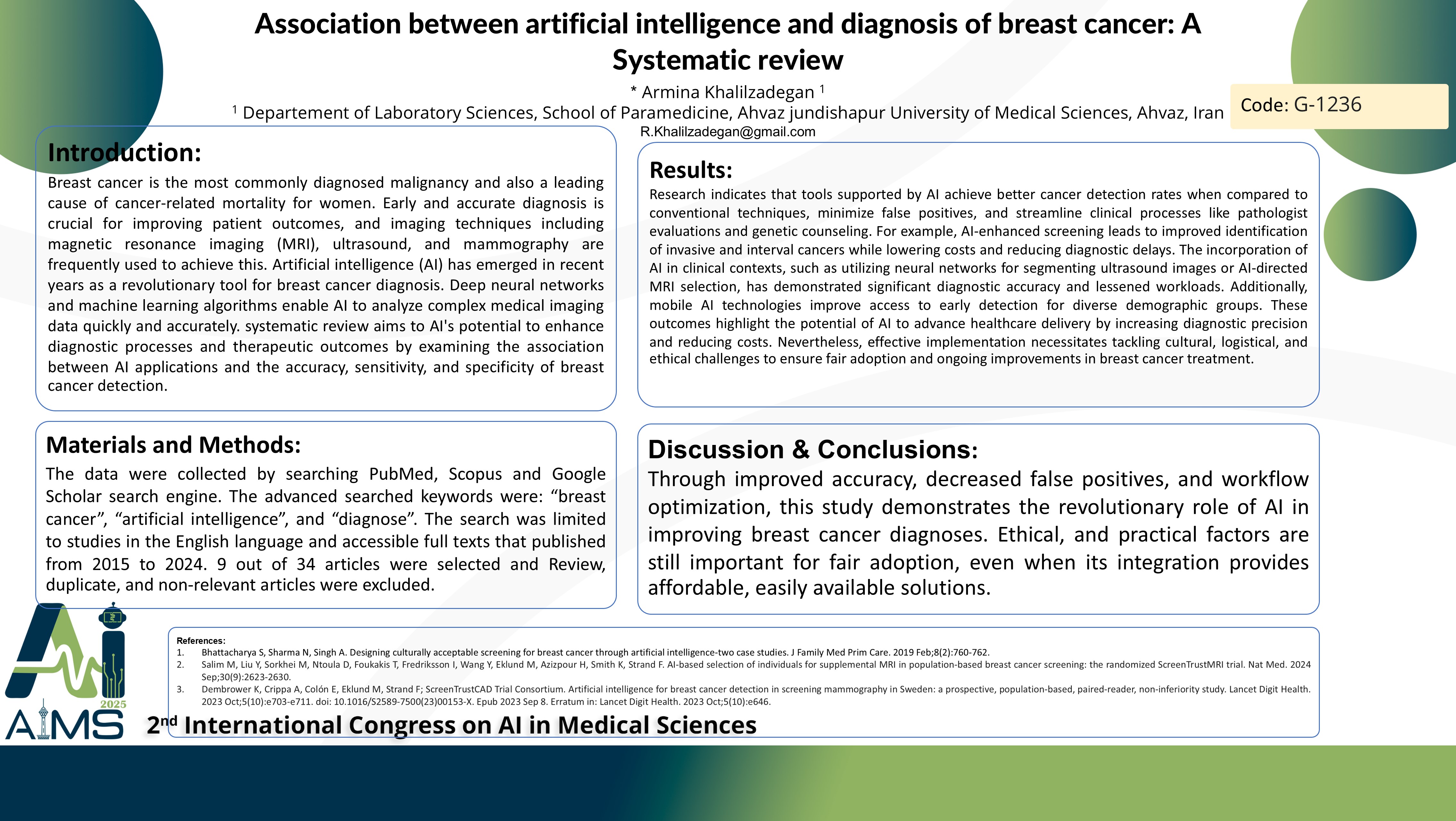ارتباط بین هوش مصنوعی و تشخیص سرطان پستان: مروری سیستماتیک
کد: G-1236
نویسندگان: Armina Khalilzadegan * ℗
زمان بندی: زمان بندی نشده!
برچسب: پردازش سیگنال های پزشکی
دانلود: دانلود پوستر
خلاصه مقاله:
خلاصه مقاله
Background and Aim: Breast cancer is the most commonly diagnosed malignancy and also a leading cause of cancer-related mortality for women. Early and accurate diagnosis is crucial for improving patient outcomes, and imaging techniques including magnetic resonance imaging (MRI), ultrasound, and mammography are frequently used to achieve this. Artificial intelligence (AI) has emerged in recent years as a revolutionary tool for breast cancer diagnosis. Deep neural networks and machine learning algorithms enable AI to analyze complex medical imaging data quickly and accurately. systematic review aims to AI's potential to enhance diagnostic processes and therapeutic outcomes by examining the association between AI applications and the accuracy, sensitivity, and specificity of breast cancer detection. Methods: The data were collected by searching PubMed, Scopus and Google Scholar search engine. The advanced searched keywords were: “breast cancer”, “artificial intelligence”, and “diagnose”. The search was limited to studies in the English language and accessible full texts that published from 2015 to 2024. 9 out of 34 articles were selected and Review, duplicate, and non-relevant articles were excluded. Results: Research indicates that tools supported by AI achieve better cancer detection rates when compared to conventional techniques, minimize false positives, and streamline clinical processes like pathologist evaluations and genetic counseling. For example, AI-enhanced screening leads to improved identification of invasive and interval cancers while lowering costs and reducing diagnostic delays. The incorporation of AI in clinical contexts, such as utilizing neural networks for segmenting ultrasound images or AI-directed MRI selection, has demonstrated significant diagnostic accuracy and lessened workloads. Additionally, mobile AI technologies improve access to early detection for diverse demographic groups. These outcomes highlight the potential of AI to advance healthcare delivery by increasing diagnostic precision and reducing costs. Nevertheless, effective implementation necessitates tackling cultural, logistical, and ethical challenges to ensure fair adoption and ongoing improvements in breast cancer treatment. Conclusion: Through improved accuracy, decreased false positives, and workflow optimization, this study demonstrates the revolutionary role of AI in improving breast cancer diagnoses. Ethical, and practical factors are still important for fair adoption, even when its integration provides affordable, easily available solutions.
کلمات کلیدی
Breast Cancer, Artificial Intelligence, Diagnose
